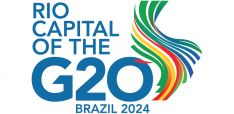International Development & Patent Deadlines: A Radical Idea
For those who tuned in for yet another TRIPS rant about how people are dying from AIDS in Africa because of American patent laws, you can tune out now. That’s not the point of this post. Plenty of people more learned and passionate about that issue have written about it and I have little to add to that conversation. But I do have another idea that has something to do with international development and patent deadlines, in a much more literal sense, and I hope you’ll keep reading to learn more.
The patent system has a very clear economic trade-off built into it. And I’ve seen both sides of this. I’ve been a consumer buying a patented invention at a premium. I’ve also been an inventor enjoying a monopoly on an invention. It’s a fascinating centuries-old system. We reward you for being innovative by giving you a temporary monopoly. In exchange, you have to disclose (in a patent application) everything a reasonably well-equipped person in your field would need to know to understand what you’ve invented (and, once the patent runs out, duplicate it). This system has given us the technologies, gadgets, vehicles, medicines, and engineering advances that make modern Western life possible.
You only get this limited window to exploit your patent and make money. If you are ahead of your time, and no one figures out how valuable your idea was until fifty years later, you’re out of luck. If you are still busy exploiting your patent (the case with many popular medications) and it runs out, you’re out of luck – a generic version of your drug will be on the market by next Friday. After the patent runs out, generics take over. Often, the generic players (who, unlike you, didn’t have to absorb the R&D costs to invent the thing in the first place) make incremental improvements (often not in the core product, but in ancillary characteristics – better packaging in the case of drugs, for instance). Knowing this benefit will vanish has many effects, including making the patent-holder more aggressive and strategic in asserting his or her rights (generally a good thing) and letting competitors and successors plan for what they will do when the monopoly ends (almost undoubtedly a good thing).
Keep that patent bit in your head for a moment, but I’m going to talk about Africa for a minute.
When I lived in Uganda, there was a constant refrain in the aid community around why local people, even after nearly a generation of presence from aid organisations of various flavours, generally did not become able to provide the services they were consuming. Why didn’t these local people become engineers? Why didn’t they become doctors? Why did so few of them go into the kinds of professions that we (“we” being mostly-white, mostly-from-rich-countries, mostly-with-advanced-degrees) saw as being valuable and worthwhile.
Let’s forget what a narrow, limiting, colonial mindset this is. Let’s examine it for a moment on its face. Why aren’t people in villages in northern Uganda becoming doctors and engineers? Yes, part of it has to do with the limits of the educational systems in these places. But there is a much more nuanced, interesting part.
I took a walk along Boulder Creek in Colorado not long ago with my new friend Greg. We have similar backgrounds; we came from upper-class families educated at top institutions. We have also both traveled and witnessed the poverty and suffering that most of the world endures on a daily basis. As I got to know Greg on our walk, I learned that we have similar skepticism when it comes to international development and are both fascinated by why Western intervention through aid has been so unsuccessful and, in many cases, disastrous.
However, I told Greg one story that surprised him. It was one of those stories where you can tell someone is listening just a little harder, hearing a new idea. And I’ve seen that same expression on the faces of others I’ve told this story, so I decided I should share it here, on this blog, where a global community of policy practitioners can read it, think about it, and process it.
The story is very simple. It begins with my friends Willy and Solomon, who introduced me to another group of their friends in the village of Oyam, a village in northern Uganda. In talking with these men, many of them farmers, I was consistently impressed by their grasp of the basic economics of their situation. Unlike many I would speak with in the UK or US, these people had a very clear idea of the global income and wealth distribution. They knew that about three billion people lived roughly as they do: in day-to-day poverty with incomes of less than $3/day on average with little opportunity to save. They knew that many Americans and Europeans would pay two dollars for a mango, but they also knew they could not compete with people growing mangoes elsewhere. They knew that the infrastructure that once existed in their region – the railway to Mombasa, for instance – had vanished and was unlikely to be rebuilt.
But they knew something else about economics that seemed to escape most of the visitors, including me. And, one day, a farmer explained it to me. I’ll do my best to paraphrase why this particular farmer doesn’t think his son will become a doctor or an engineer. There are many other parents just like him, who have had the same thought, and not enough of us in the international development game have had this thought.
“Why would my son become an engineer or a doctor? There have been white people, ‘aid people,’ here for a generation. They will still be here when I die and when my son dies. Who will hire my son the doctor when there is a white doctor who went to an American medical university who will do a surgery for nothing? Who will hire my son the engineer when there are engineers with five, ten, or twenty years’ experience from Europe who will design a bridge or carve a road into a hillside for pennies? As long as these people are here, my son has no future in those jobs. My son will be a farmer.”
This is probably the most profound analysis of the failure of aid that I heard while living in Africa. And it stuck with me. It struck me, just as it struck Greg when I recited it to him on our walk in Colorado two years later. We are trampling on the dreams of young bright people and destroying the hopes parents once had for their children. And we are doing it with our species of careless, selfish philanthropy. We are cannibalizing the hopes and dreams of the poorest families in the world so that our own children can get a nice CV item to add on top of Harvard Medical School or a top civil engineering programme.
And it’s not going to change this year, or next year. But I have a proposal that it should change soon.
My proposal is very simple: Limit aid like we limit patents. At some point, your aid runs out. It doesn’t matter if the work isn’t done yet, if the road isn’t built yet. It doesn’t matter just like it doesn’t matter if you’ve fully-exploited your patent rights. Make the most of your aid years, you won’t get more.
But when the next generation matures, the aid workers will be gone. Their Land Rovers will sit rotting, the endless stream of subsidised parts finally ended. Their buildings will crumble, replaced by ones designed by local architects and leased by local entrepreneurs. Their roads will be extended by new roads to new places, designed and built by local people who were allowed to follow their dreams.
Next time you think of the job you’re doing when you’re in the field, consider that you may be doing it at the expense of someone else. That you may be destroying an opportunity before it was ever allowed to mature into existence. That you may be part of the problem.
I struggle with international development, its role in the world, its role as both a part and a purpose of international aid, and the effects we have on those we may want with all our hearts to help. In fact, we are so focused on helping that, perhaps, we can ignore the destruction we leave in our wake.
The question is: for how much longer can we ignore it?


